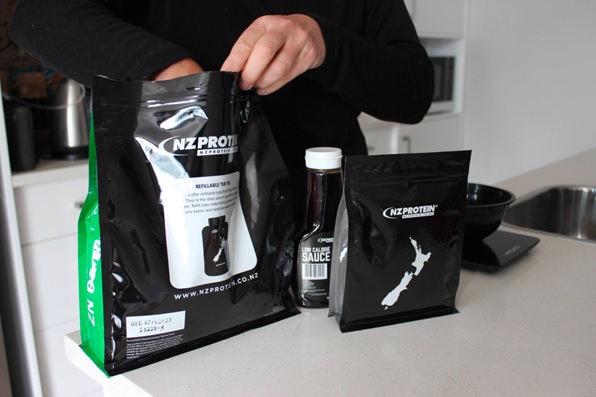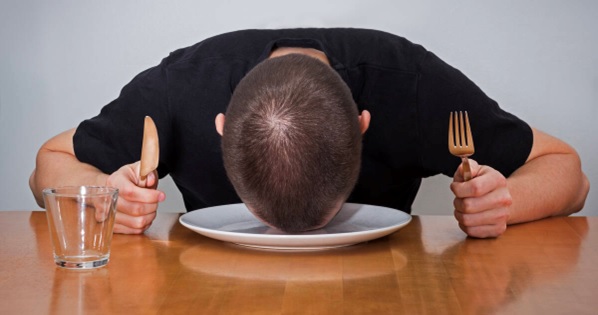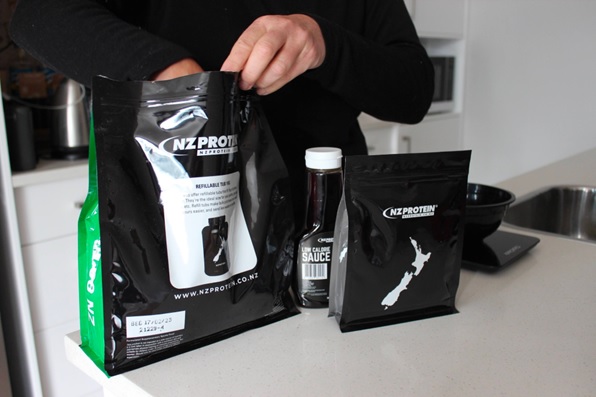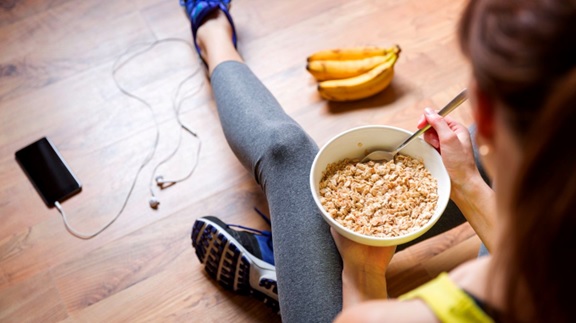
Want to lose fat without losing your gains? Doing so is difficult but not entirely impossible. In order to drop some weight, you must decrease your calorie intake. Unfortunately your body doesn’t like to hold onto muscle if it’s getting less fuel than usual. Luckily there are some strategies you can implement to avoid losing all of your gains during a fat loss phase. Read below to learn the best way to drop extra body fat while retaining as much muscle as possible.
Don’t Drop Calories Too Low
“Drastically cutting your calorie intake is a good idea” said no one ever. Your body likes to stay in its comfort zone. This is referred to as “homeostasis”. If you go from smashing back 3000 calories a day to a meagre 1000 calorie diet, you can expect some seriously negative repercussions. Insatiable hunger, low mood and loss of vitality will likely result. Evidence shows that the best way to drop fat without losing muscle is to do it incrementally. A reasonable deficit would look like losing 0.5-1% of your body weight per week until you reach your desired physique. Obviously more weight loss is not necessarily better and doing it slowly is likely to be better for sustainability. Don’t be disheartened if the scales move slower than you want them to. Start by reducing your calorie intake in small, unnoticeable ways. This could look like swapping full cream milk to trim, picking a leaner cut of meat or having homemade meals instead of takeaways. Ideally you want to slowly deplete your body fat stores without your body noticing and freaking out. Slow and steady wins the race.

Smash That Protein
High protein intake is your best insurance against muscle loss. There is a plethora of research supporting this. Anyone who has studied science will know that muscle is made from protein. Expecting to retain it without eating sufficient protein is like not paying your power bill but expecting the lights to stay on. Failing to eat enough of the good stuff will cause your muscles to atrophy and you’ll feel as weak as a paper bag. The general recommendation is to eat two grams of protein per kilogram of bodyweight every day. For the average joe, this might seem like a lot. This is where supplements can come in handy. One scoop of NZProtein isolate contains more protein than four eggs. Alternatively, our mug cakes contain a whopping 33 grams of protein per packet. Although you can hit your protein goal using only foods from the supermarket, protein powders can be incredibly helpful and cheaper in the long run. Overall, the most important thing is that you eat decent quantities of protein rich foods frequently throughout the day. Don’t skimp on your intake and your muscles will hang around for good.

Keep Lifting Those Weights
You know the expression “use it or lose it”? Well it applies to muscle. Muscle tissue is metabolically expensive meaning your body needs a lot of calories to sustain it. People with high muscle mass therefore require more energy to live compared to skinnier individuals. Your body will only cling onto muscle in a calorie deficit if it really needs to because the upkeep is so difficult. If you commence a fat loss diet and stop resistance training, you are essentially telling your body that you don’t need much muscle to get through daily life. Lifting weights will convey the message that you still need those muscles to function so your body better hold onto them for dear life. This doesn’t mean you need to wreck yourself with high volume workouts. But you do need to consistently utilise those muscles you want to preserve. The primary cause of muscle atrophy is disuse so keep up the resistance training and ensure you’re lifting with your usual level of intensity.

Timing Is Everything
Nutrient intake timing and meal frequency is more important for those in a deficit compared to those eating at maintenance. We aren’t saying you have to eat multiple small meals throughout the day like an old school bodybuilder but it pays to be strategic with your meal times. Research shows that three to four meals spread evenly throughout the day is the sweet spot. Having a protein rich meal every few hours will help keep hunger at bay. You should also ensure that your body has sufficient pre-workout fuel. It is ideal to have some food in the tank, preferably carbohydrates, prior to your session so that you can train with good intensity. Follow up your workout with a meal containing at least 20 grams of protein to ensure your muscles recover quickly. It really is as simple as that. Four high protein meals, spread evenly throughout the day so that your body doesn’t go too long without nutrients. Following this routine should help you ditch the extra body fat while preserving those precious gains.

Train Hard But Recover Harder
Finally, one of the most overlooked factors is recovery. Getting enough sleep is just as important as lifting heavy and eating your protein. Don’t expect to feel good if you’re going balls to the wall in the gym and sleeping three hours a night. Recovery is important for both mental and physical health. While you sleep, your body synthesises proteins and releases a range of different hormones that are essential for growth. Failing to get sufficient rest is a great way to guarantee muscle loss and poor mood in general. Don’t listen to people who say “we can sleep when we’re dead”. Prioritising your seven hours a night will put you in the best position to maintain your gains. So go easy on the caffeine, get to bed early and reap all the benefits a good night of sleep has to offer. You won’t regret it.

Conclusion
A little bit of muscle loss during a dieting phase is normal but not inevitable. It’s possible to preserve your hard earned gains with a well thought out nutrition, training and sleep routine. Focus on being in a small calorie deficit and prioritise regular protein feedings. Sleep a minimum of seven hours every night and keep lifting those heavy weights. Under these circumstances, your body won’t have a choice but to hold onto the muscle you have worked so hard to build.
Written by Lauren Carruthers.
